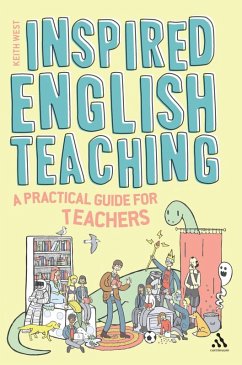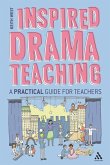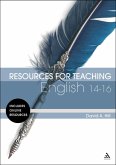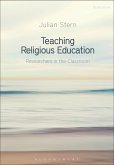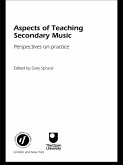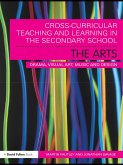What messages are you sending to your class? 55% of communication occurs through our body language, 38% from the tone, speed and inflection of our voice and a mere 7% from what we're actually saying!
Inspired English Teaching will help you to use your voice, facial expressions and movement to assert your authority in the classroom, make the boring bits that you have to do fun and get great results from your students.
The book also contains 20 ready-to-use lesson plans that will excite, intrigue and entertain your Secondary English class, and a companion website that includes:
· links to useful websites
· PowerPoints to display on the board
· handouts for students
· Cheat Sheets for teachers; and
· extra games and activities to supplement those in the book.
Whether you are a newly qualified teacher or a seasoned professional wanting some new ideas - this book will show you how to inspire the students in your classroom.
Inspired English Teaching will help you to use your voice, facial expressions and movement to assert your authority in the classroom, make the boring bits that you have to do fun and get great results from your students.
The book also contains 20 ready-to-use lesson plans that will excite, intrigue and entertain your Secondary English class, and a companion website that includes:
· links to useful websites
· PowerPoints to display on the board
· handouts for students
· Cheat Sheets for teachers; and
· extra games and activities to supplement those in the book.
Whether you are a newly qualified teacher or a seasoned professional wanting some new ideas - this book will show you how to inspire the students in your classroom.

